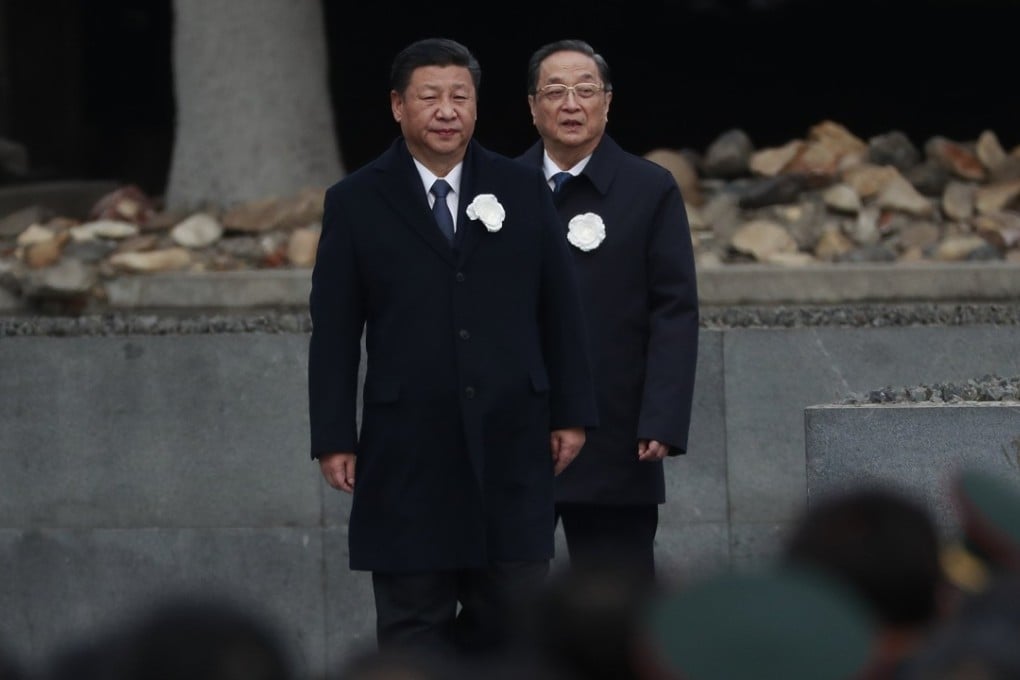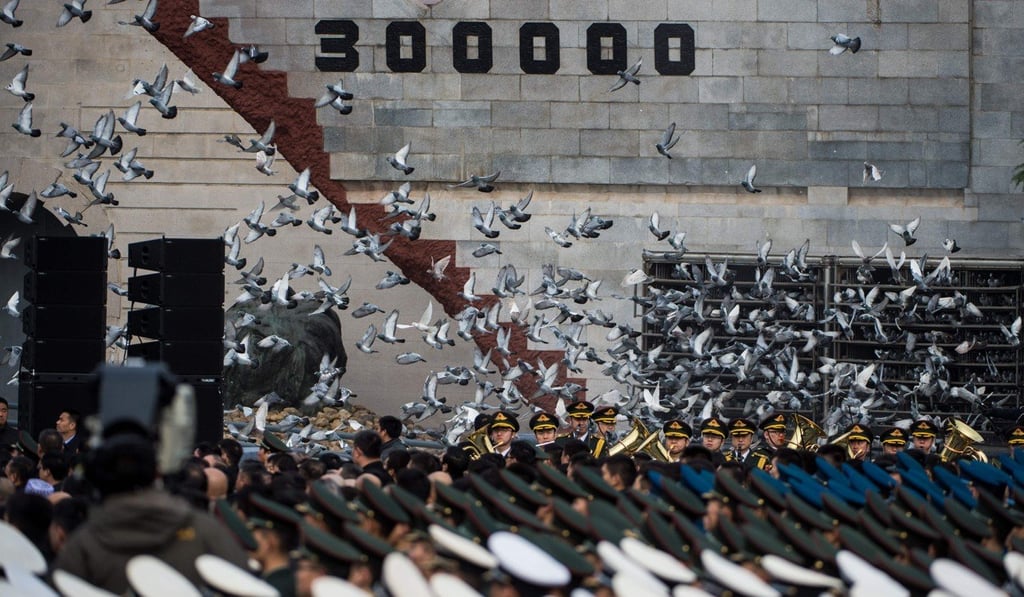80 years on, China tempers Nanking massacre anniversary in nod to Japan
Wartime legacy still a stumbling block but both countries working to improve ties, observers say

Chinese President Xi Jinping was on hand in the eastern city of Nanjing on Wednesday to mark the 80th anniversary of a wartime massacre by Japanese troops, but commemorations were low key in an apparent gesture to Tokyo.
In a rare move, Xi attended the event but did not make a speech – a sharp contrast to three years ago when the president addressed the crowd.
The host at Wednesday’s event was also lower ranking than his counterpart in 2014, when China made the anniversary a national day of remembrance.
China says about 300,000 civilians and soldiers were killed in a frenzy of murder, torture, rape, arson and looting in the six weeks after the invading Japanese military entered Nanjing, then the Chinese capital, on December 13, 1937.

Japan’s Jiji news agency said it was rare for Xi to attend a national event without speaking publicly but the move could be a signal to Japan of improving ties between the two countries.